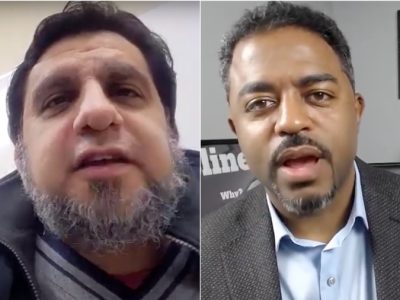New Year’s terror in New Orleans: 14 people dead and dozens wounded after a 42-year-old man drove a rented pickup into a celebratory crowd on Bourbon Street. Police killed the terrorist in a shootout before he could wreak further havoc. The truck bore an ISIS flag, the banner of the global jihad. In a cruel irony, revelers had gathered to welcome a new beginning. The attack was a horrible reminder of ancient evils and enduring threats.
At such moments our attention turns inward. The media provide updates, profile victims, and explore how the assailant, U.S. citizen and Army veteran Shamsud-Din Jabbar of Houston, Texas, became a radical Islamist. It’s tempting to fixate on Jabbar’s crooked path to mass murder while neglecting the broader movement to which he belonged. Such temptations should be avoided. What happened in New Orleans was larger than one man’s pathology. It was the latest atrocity committed in the name of a sick ideology.
The jihadist worldview exemplified by ISIS has not been vanquished. On the contrary: It is resurgent. There was a terrible attack in Moscow last April, and last month’s Christmas market attack in Germany killed four women and a nine-year-old boy. Radical Islamism is growing in and fuels violence throughout Africa. ISIS rages in Syria and Iraq as its Sunni compatriots in Hamas fight to the death in Gaza. Shiite radicals in Hezbollah and among the Houthis sow terror at the direction of their Iranian masters. Above all, ISIS has embedded in Afghanistan, where its leaders issue communiques to an international following, plot against the West, and attack both the Taliban government and neighboring Pakistan.
Even a “virtual” caliphate such as ISIS has a physical infrastructure: fortresses, hideouts, safe houses, networks, and members. The strength of the material base has a direct relationship with the ideology’s global appeal. This is not idle speculation. It is historical fact. America’s global war on terror decimated al Qaeda. The surge defeated al Qaeda in Iraq. The anti-ISIS campaign initiated reluctantly under President Obama and intensified righteously by President Trump brought the group to its knees in Iraq and Syria. Israel’s response to the October 7 attacks has crushed Hamas, hobbled Hezbollah, and left Iran scurrying for an escape hatch.
Terrorist movements wax strong when they believe that history is on their side. And there is no better way to rid the terrorists of that notion than to deny them haven and reduce their leaders to ash. […]
— Read More: freebeacon.com
What Would You Do If Pharmacies Couldn’t Provide You With Crucial Medications or Antibiotics?
The medication supply chain from China and India is more fragile than ever since Covid. The US is not equipped to handle our pharmaceutical needs. We’ve already seen shortages with antibiotics and other medications in recent months and pharmaceutical challenges are becoming more frequent today.
Our partners at Jase Medical offer a simple solution for Americans to be prepared in case things go south. Their “Jase Case” gives Americans emergency antibiotics they can store away while their “Jase Daily” offers a wide array of prescription drugs to treat the ailments most common to Americans.
They do this through a process that embraces medical freedom. Their secure online form allows board-certified physicians to prescribe the needed drugs. They are then delivered directly to the customer from their pharmacy network. The physicians are available to answer treatment related questions.




